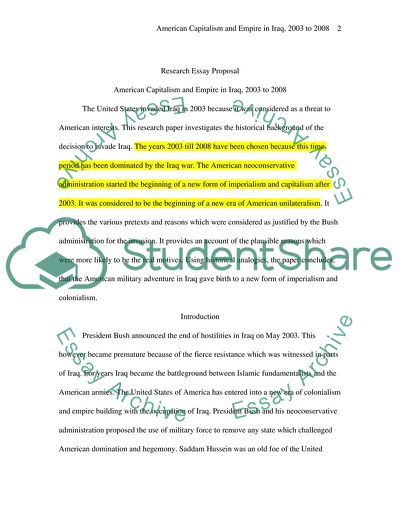Cite this document
(American Capitalism and Empire in Iraq Research Proposal, n.d.)
American Capitalism and Empire in Iraq Research Proposal. https://studentshare.org/history/1717303-american-capitalism-and-empire-in-iraq-2003-to-2008
American Capitalism and Empire in Iraq Research Proposal. https://studentshare.org/history/1717303-american-capitalism-and-empire-in-iraq-2003-to-2008
(American Capitalism and Empire in Iraq Research Proposal)
American Capitalism and Empire in Iraq Research Proposal. https://studentshare.org/history/1717303-american-capitalism-and-empire-in-iraq-2003-to-2008.
American Capitalism and Empire in Iraq Research Proposal. https://studentshare.org/history/1717303-american-capitalism-and-empire-in-iraq-2003-to-2008.
“American Capitalism and Empire in Iraq Research Proposal”. https://studentshare.org/history/1717303-american-capitalism-and-empire-in-iraq-2003-to-2008.


